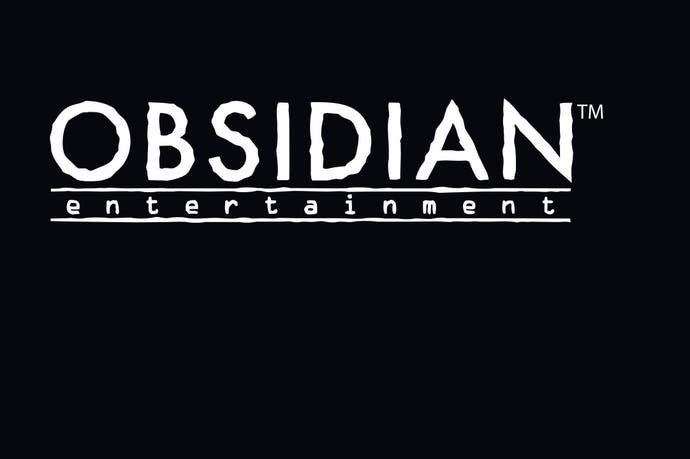"We might not tackle a game like this again"
Obsidian opens up after Armored Warfare contract terminated.
Obsidian Entertainment has assured Eurogamer it is "doing fine" following the announcement it will no longer develop Armored Warfare, the free-to-play tank game. Those duties will move wholesale to Russian studio My.com, owned by the Russian company bankrolling the whole operation, Mail.ru.
In an official statement the two companies suggested the split was amicable but in a conversation with Eurogamer, Obsidian CEO Feargus Urquhart said it's unlikely the independent studio will ever tackle a game like Armored Warfare again.
But however unusual Armored Warfare might have seemed for role-playing specialist Obsidian, it was paying the bills. It was the bedrock of Obsidian operations for the past four years, the main project at a studio of nearly 200 people. Productions like Pillars of Eternity and Tyranny were small by comparison.
There being no further Armored Warfare paychecks will inevitably have wider repercussions for Obsidian, a company that came perilously close to closure in 2012.
Obsidian hasn't announced new layoffs - despite online reports of them (a producer from Turtle Rock told Chris Avellone, former Obsidian creative director, the studio had hired some laid-off Obsidian staff) - and when I asked CEO Feargus Urquhart whether Obsidian would downsize his reply was, "We are doing fine."
It's worth noting that Obsidian laid off an undisclosed number of Armored Warfare staff in December 2016, as development was partially moved to My.com in Russia.
Of Obsidian's in-development games, the currently-in-crowdfunding Pillars of Eternity 2: Deadfire stands to be most affected. However, Feargus Urquhart assured me Pillars 2, which has raised a meaty $2.6m with 10 days to go - well over its $1.1m goal - was "totally fine".
"Everything is totally fine on Pillars 2," he said. "Between royalties from Pillars 1, and the Fig campaign, we will have all the funding we need to finish the game without changing anything about the team or our plans."
Besides Pillars 2, Obsidian is working on card game Pathfinder Adventures as well as "other unannounced projects", according to a comment Urquhart made in the official Armored Warfare statement. Whether those unannounced projects are big enough to fill Armored Warfare's void remains to be seen.
Why did Mail.ru and Obisidian part ways over Armored Warfare? A number of reports cite a Reddit post by an Armored Warfare "consultant", who suggested mounting tension from creative differences drove the two companies apart. Allegedly Mail.ru wanted a World of Tanks clone whereas Obsidian wanted Armored Warfare to be something more, so Mail.ru terminated the contract and moved development in house.
But the person who wrote the post was not an employee of Obsidian nor My.com/Mail.ru nor privy to inside information. Both Feargus Urquhart, and the person who wrote the post, confirmed this to me. The person was a voluntary member of the community, a superuser, and much of the post is supposition.
"When it comes to what happened between My.com and Obsidian," Feargus Urquhart told me, "we jointly decided that Obsidian would stop working on the game. They have a great team in Moscow that has been ramping up for almost a year, and there are some people there who have been working closely with us for upwards of three years.
"We are going to support their team over the next while and help them get up to speed on the last few things they need to understand about the game. I don't think any of the Armored Warfare players are going to see a lull in the support of the game, or in the release of announced features, while this transition is going on."
Monetary concerns aside, the move away from Armored Warfare sounds in some ways like a relief. Massively-multiplayer online games are complicated, ongoing services, and it sounds as though Obsidian has had its fill.
"It's funny you should ask about whether Armored Warfare was an unusual project for us," Urquhart told me. "It really was, but we are super proud of what we did with it. Going from nothing at the end of 2012 to launching out to the world for open beta by October of 2015: that was a pretty amazing feat for a non-MMO studio.
"What we did learn is we might not tackle a game like this again. Large MMOs are really beyond the ability of an independent developer to manage unless that developer gets huge and brings in all the other aspects of the business: operations, customer service, live operations, etc.
"Those things all sound interesting, but what is more interesting to us, and to me personally, is focusing on the making of a game. When a studio begins to focus on all those other things, you are all suddenly in a lot of meetings every day that aren't to do with game development.
"So, the answer here is we love making games," he added, "but the challenge with making a large MMO is you can't [help] but get dragged away from the game-making part."
It's tempting to look at this as Obsidian returning to the kind of games we want it to make - games like Fallout: New Vegas, Knights of the Old Republic 2, South Park: The Stick of Truth, Alpha Protocol and so on. Role-playing games with a proper budget. But those budgets come from publishers, and although Obsidian has worked with most of them, few appear to have asked Obsidian back.
Our best wishes to any Obsidian employees affected by layoffs.



